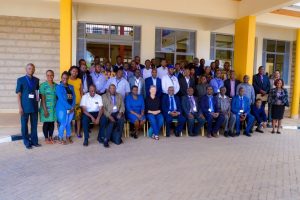2ND ANNUAL INTERNATIONAL CONFERENCE
- Posted by
- Posted in Research News, RIL News
Machakos University 2nd Annual International Conference kicked off on 24th April 2019 with an exciting and informative opening ceremony presided over by the Cabinet Secretary for Environment and Forestry, who was represented by Prof. Pacifica Ogola, a senior Ministry official. The preparation of the conference started in August 2018 saw a total of about 257 converge at Machakos University.
The Conference theme: Supporting Green Growth and Knowledge Economy through Research, Innovation and Technology for Sustainable Development underscored Machakos University’s inherent efforts to the realization of Sustainable Development while being conscious of the environmental implications that manifest in the following sub-themes:
- Agriculture, Food and Nutrition Security
- Health care, Leisure and Tourism Innovation
- Language, Culture, Social Equity and Governance
- Built Environment and Infrastructure Development, Industrialization: Emerging Technologies, Manufacturing &Agro-processing
- Energy, water, climate Change and Environmental Sustainability
- Mathematics, Statistics & Data Science, Basic and Applied Sciences
- Issues in Education and Training
- Business, Entrepreneurial Innovation, SMEs & Marketing
OFFICIAL OPENING
Machakos University 2nd International Conference, under the theme: Supporting Green Growth and Knowledge Economy through Research, Innovation and Technology for Sustainable Development, started on 24th April 2019 and was officially opened by Hon. Keriako Tobiko, the Cabinet Secretary for Environment and Forestry, who was ably represented by Dr. Pacifica Ogola.
The Cabinet Secretary noted that the Conference was an avenue to find practical and flexible approaches for achieving concrete, measurable progress across economic and environmental pillars, while taking full account of the social consequences of greening the growth dynamic of economies. Consequently, it translates into the appreciation of the fact that the focus of green growth strategies is ensuring that natural assets can deliver their full economic potential on a sustainable basis. That potential includes the provision of critical life support services – clean air and water, and the resilient biodiversity needed to support food production and human health. In turn, these are the basic foundations of the Government of Kenya’s Big Four Agenda: Manufacturing, Food and Nutrition Security, Housing and Affordable Healthcare.
In his address, the Cabinet Secretary said that in embracing and supporting Green Growth, the Ministry of Environment and Forestry has undertaken key programmes across its branches, among them the following:
- Awareness creation and public sensitization on the value of the environment as a resource and its conservation.
- Participation in Conference representing the interests of Kenya in specific aspects of agreement.
- Formulation and the publishing of National Climate Change Response Strategy to guide all sectors in mitigating, adapting and coping with effects of climate change.
- Adopt a tree Initiative: The School Green Initiative is a major programme coordinated by the Ministry in collaboration with Ministry of Education. The programme is encouraging tree planting in schools since the learning institutions own land and the student population guarantees high survival rates of the trees. Pupils and students are encouraged to adopt and care for a tree during their schooling period thus enhancing survival and increase in forest cover.
The Cabinet Secretary ended address by noting that in contributing to the aspirations of green economy, universities, and Machakos in particular, shall continue to transform our communities in a sustainable manner. The result shall be happy and healthy lives not only for human beings, but other creatures with which we share this planet.
The official opening ceremony was also addressed by the Chairman of Machakos University Council, Prof. Gideon Hanjari, who was represented by Council Member, Mr. Richard Mativu. The Chairman said that the Council is cognizant that conferences provide opportunities for researchers, innovators, policy makers, employers among other stakeholders to share their experiences on pertinent issues. He further said that the Council will continue to promote infrastructure that can promote cutting-edge research in line with the three pillars of the Vision 2030 and the Government Big Four Agenda.
“We hope to pursue areas of interest that can increase research funding through grant proposal writing and engagement with other development partners. Apart from research, we need to develop and/or adapt innovations that can improve the quality of life of our people. I call upon members of staff of Machakos University and all other participants to be committed to scholarly undertakings to make our research and innovation outputs visible.” The Chairman said.
In her opening address, the Vice-Chancellor, Prof. Lucy Irungu, who was represented by the Deputy Vice-Chancellor (in charge of Administration, Planning & Finance) Prof. Douglas Shitanda said that the concept of sustainable development which the conference theme rode on was conceived by the United Nations in 1983 and now it has become a norm and as a pattern for social – economic transformation in many countries around the world.
“Today, no economic debate can pass the test without addressing Sustainable Development Goals as was envisaged in that commission. These Development Goals have become a global agenda and have been adopted by the United Nations, Africa Union Agenda 2063, Kenya Vision 2030 and the Government’s Big Four Agenda. This implies that we cannot talk of supporting green growth and the knowledge economy through research, innovation and technology for sustainable development in isolation from the global perspective” The Vice-Chancellor said.
Prof. Irungu noted that Africa has lagged behind for many centuries due to simple reasons of not modelling their economies based on technology and science. She hoped that the discussions and knowledge dissemination in the conference will add value to the ongoing global debate on green growth and knowledge economy through research, innovation and technology.
In his welcome remarks, the Deputy Vice-Chancellor (Research, Innovation &Linkages) and also the Chairman, Conference Planning Committee Prof. Peter Mwita, told participants that the Second Conference focused on Green Growth as a driver of Sustainable development, a domain that informed the theme: Supporting Green Growth and Knowledge Economy through Research, Innovation and Technology for Sustainable Development.
The essence is to find strategies for sustaining economic growth and job creation necessary to reduce poverty in the face of worsening resource constraints and climate crisis. Prof. Mwita urged all the participants in the Conference, to explore and deliberate freely on the strategies that would provide solutions to global challenges facing green growth so as to achieve sustainable development as was reflected in the Conference sub-themes.
2ND ANNUAL CONFERENCE PICTURES
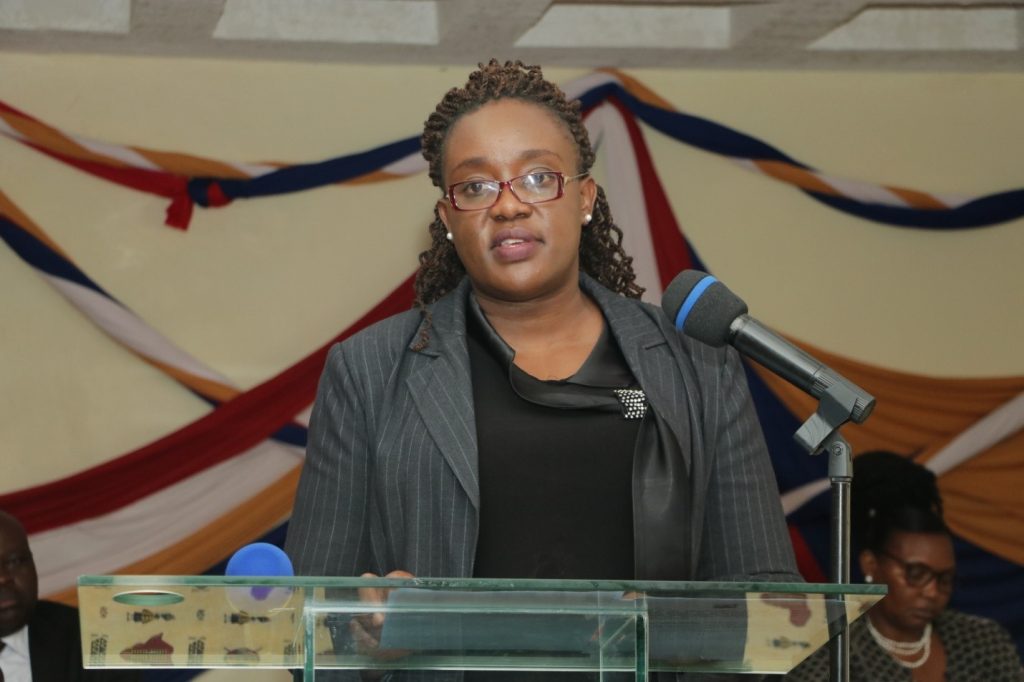
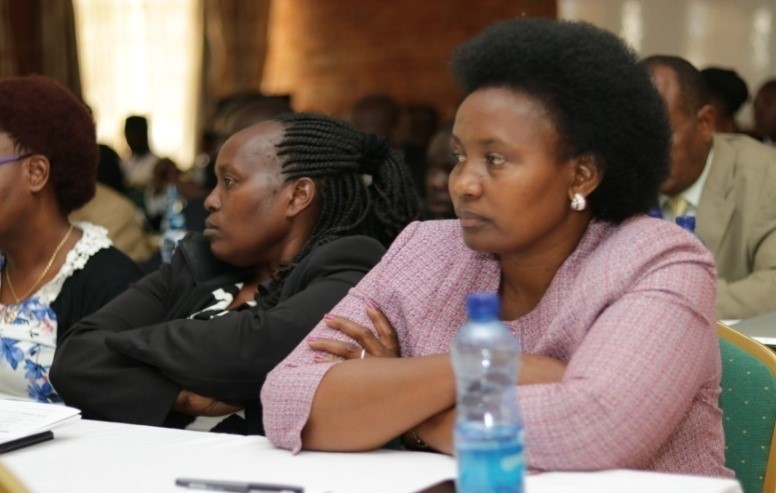
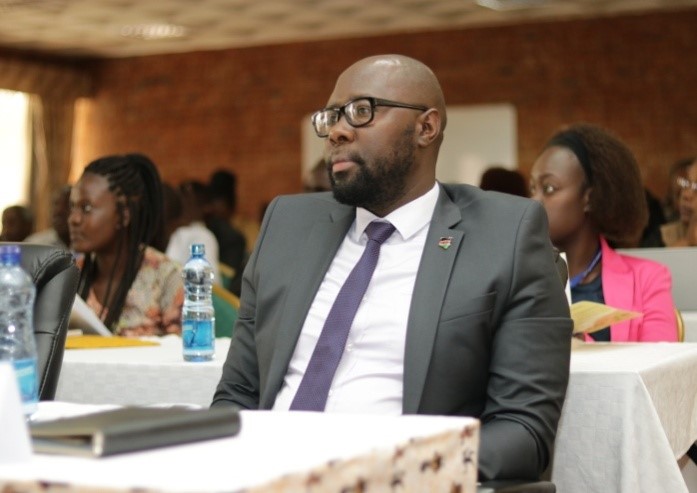
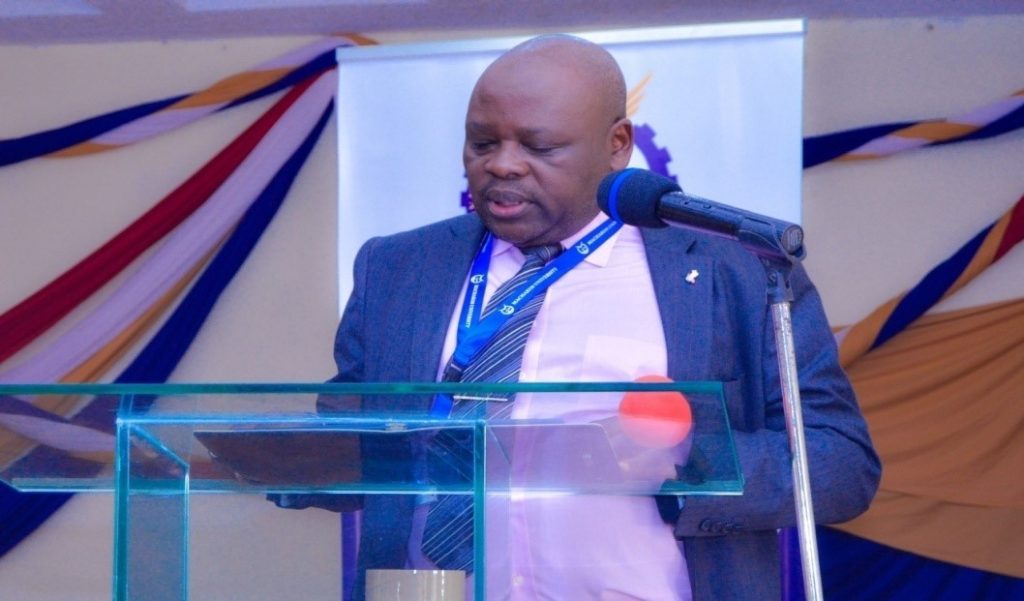
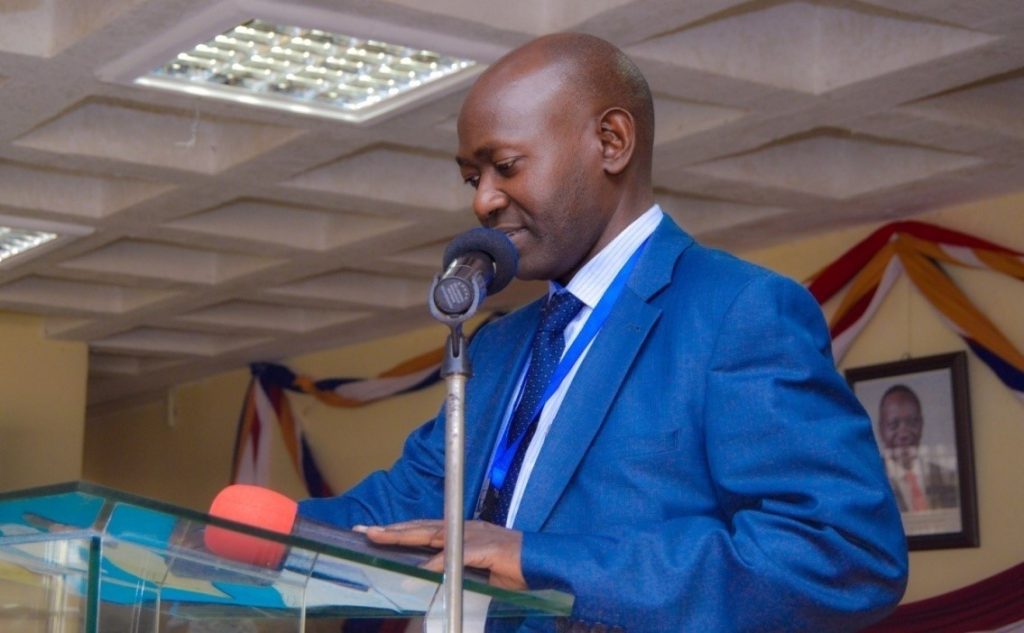
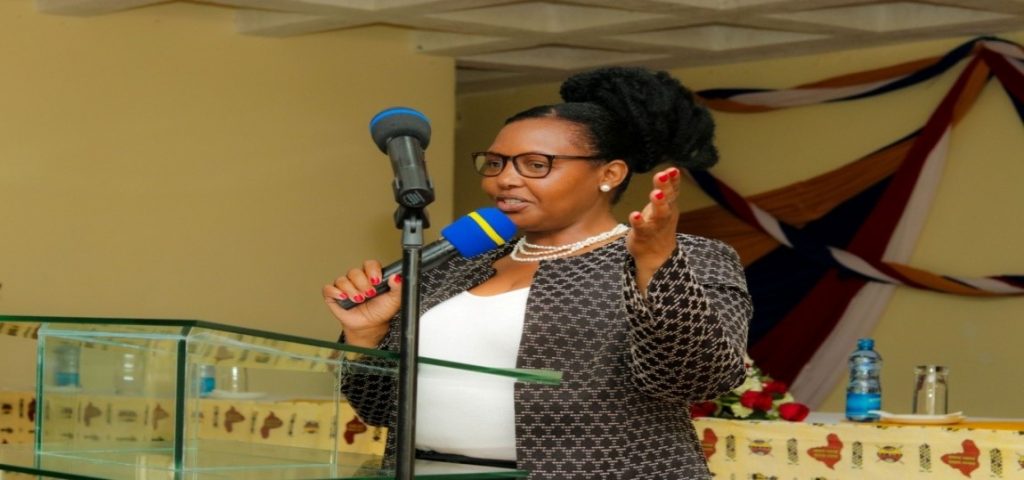
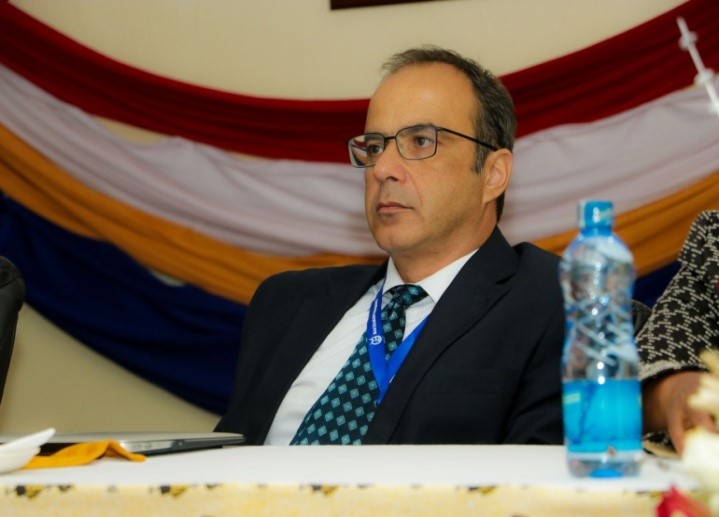
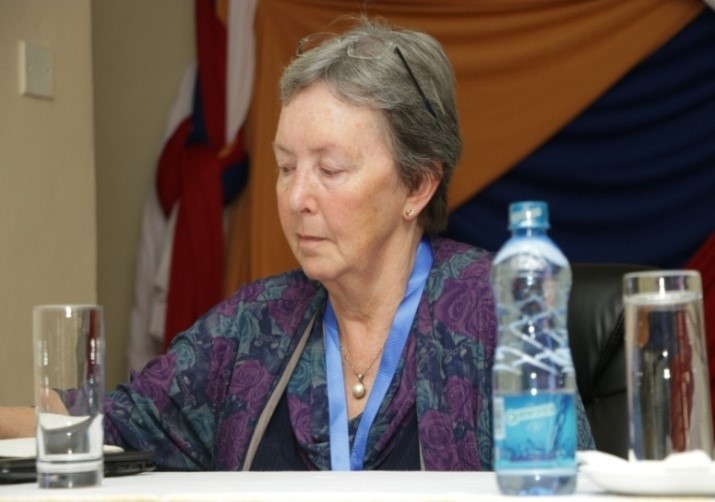
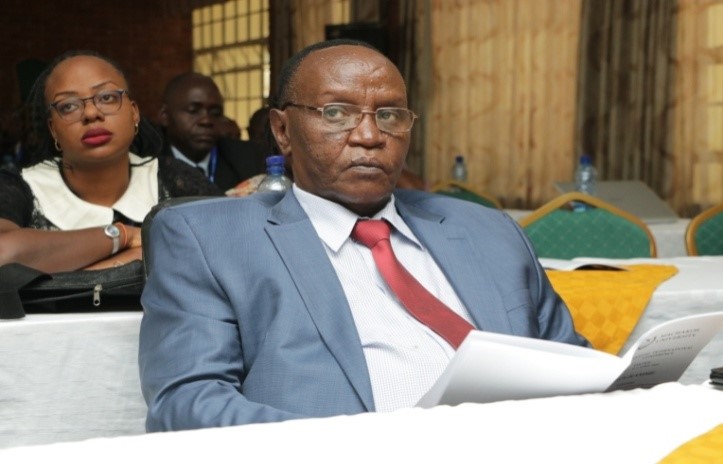
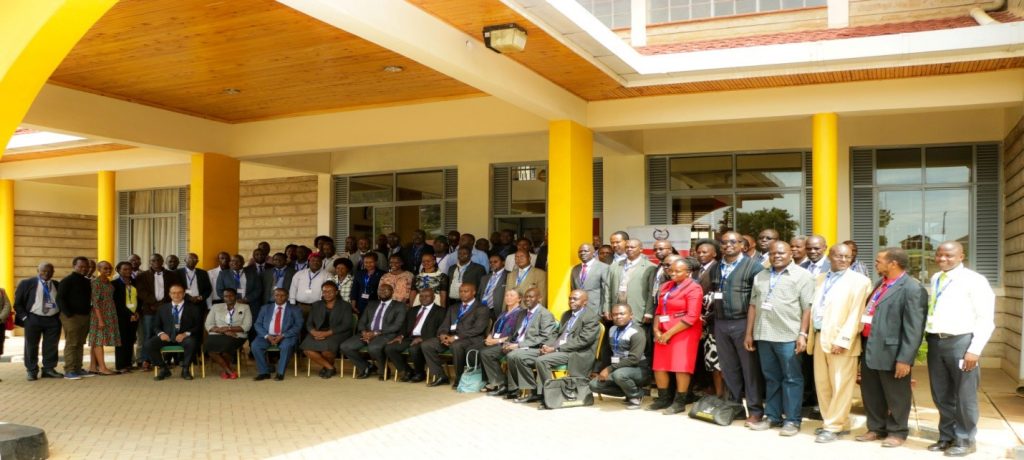
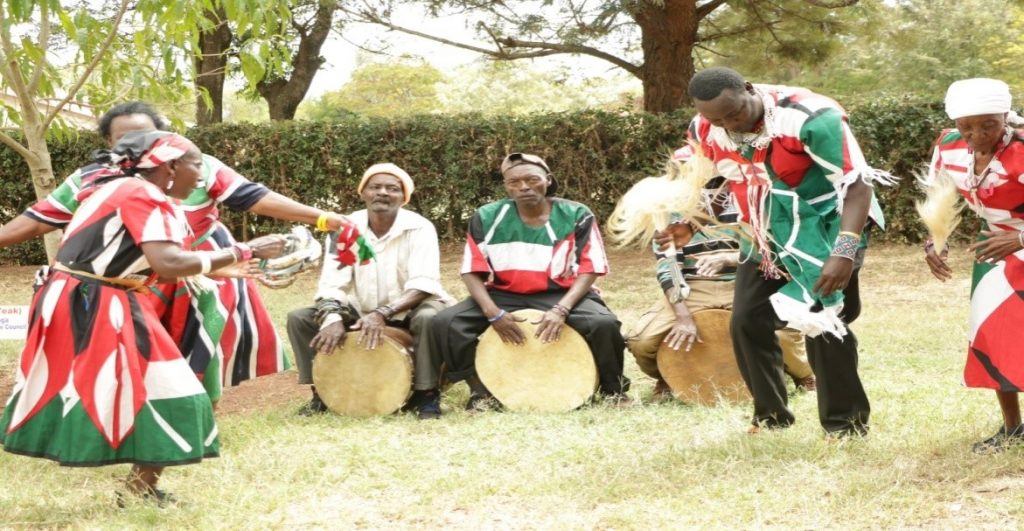
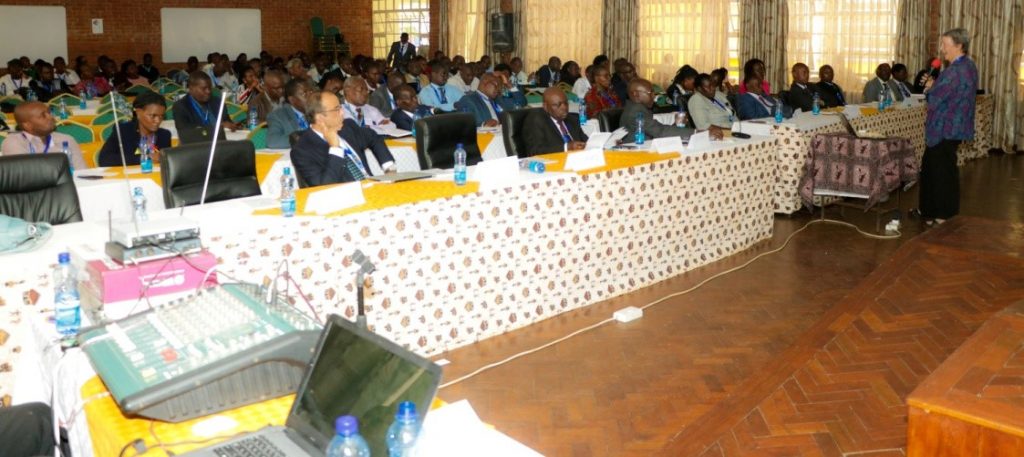
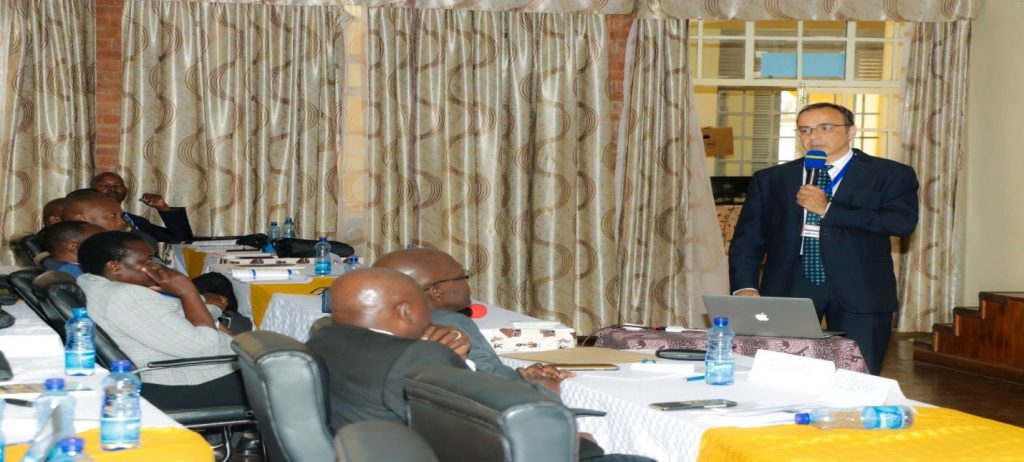
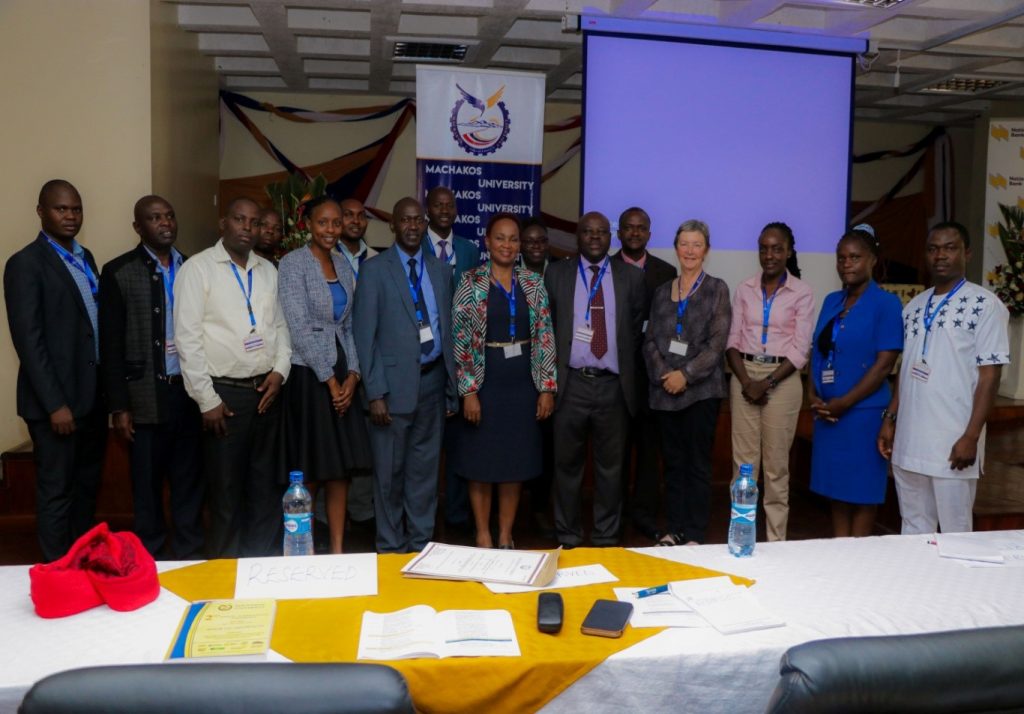
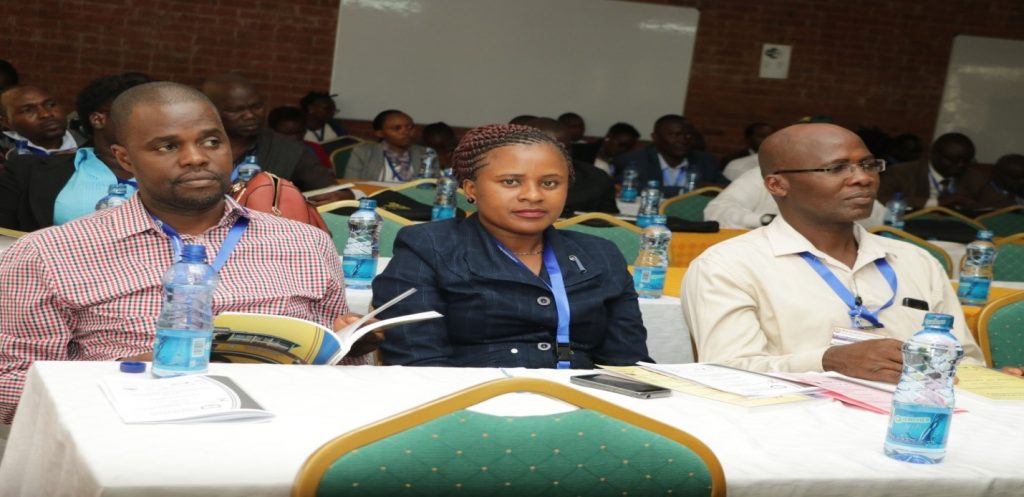
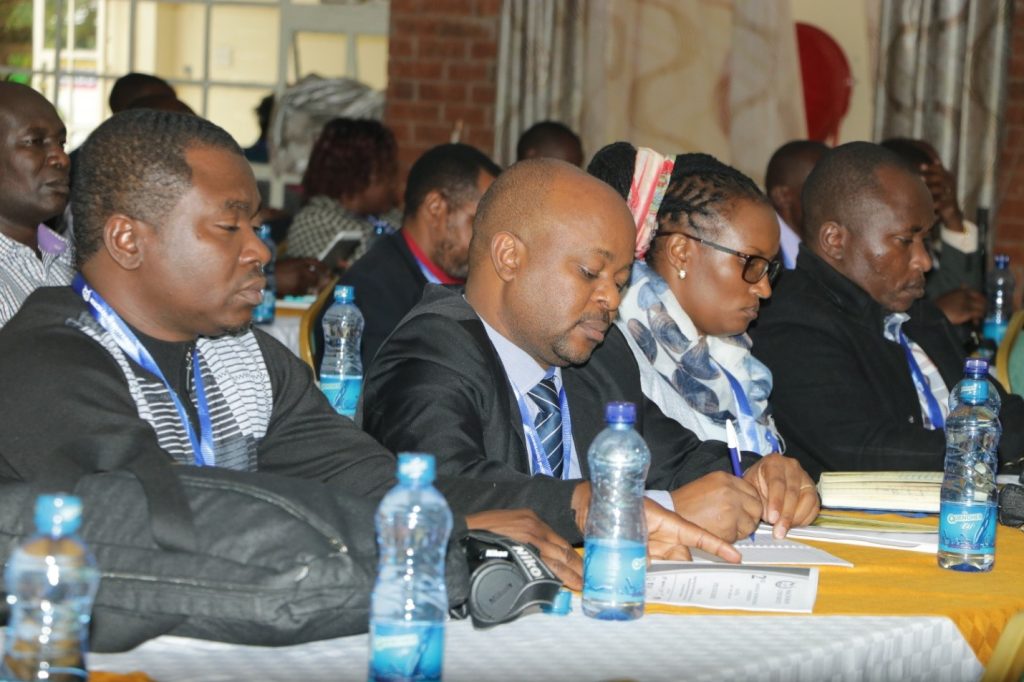
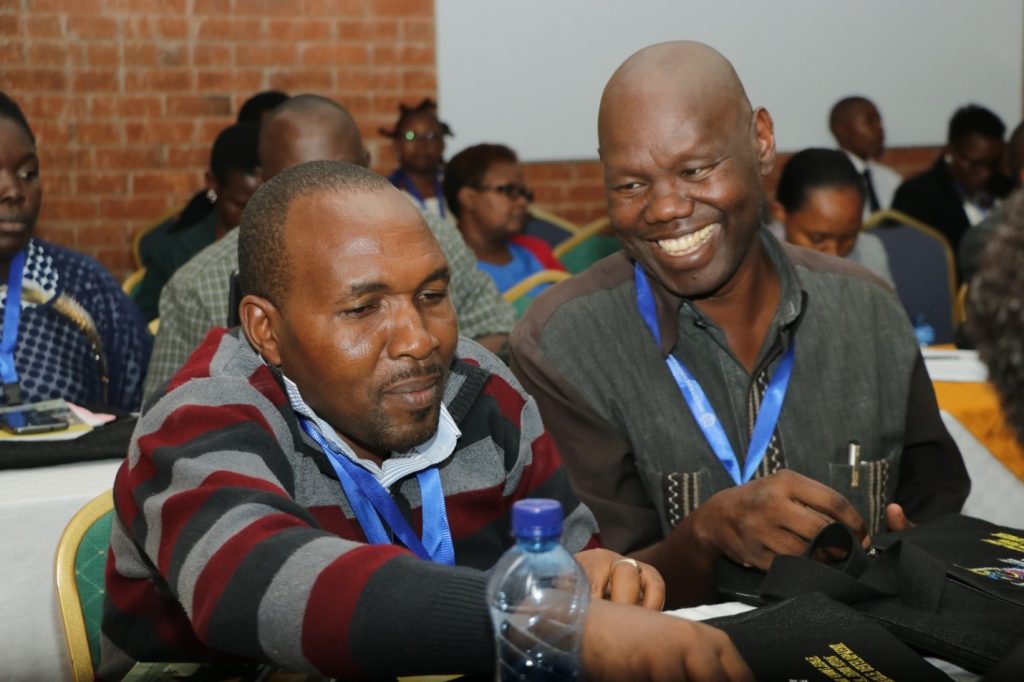
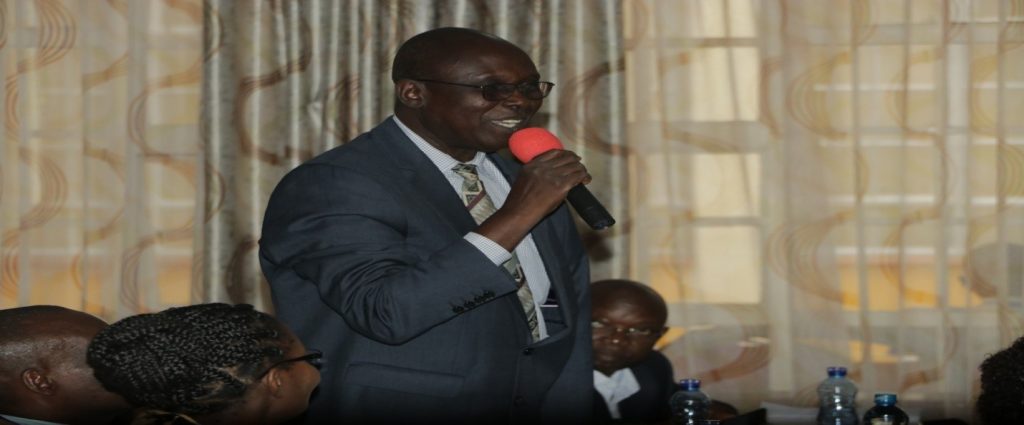
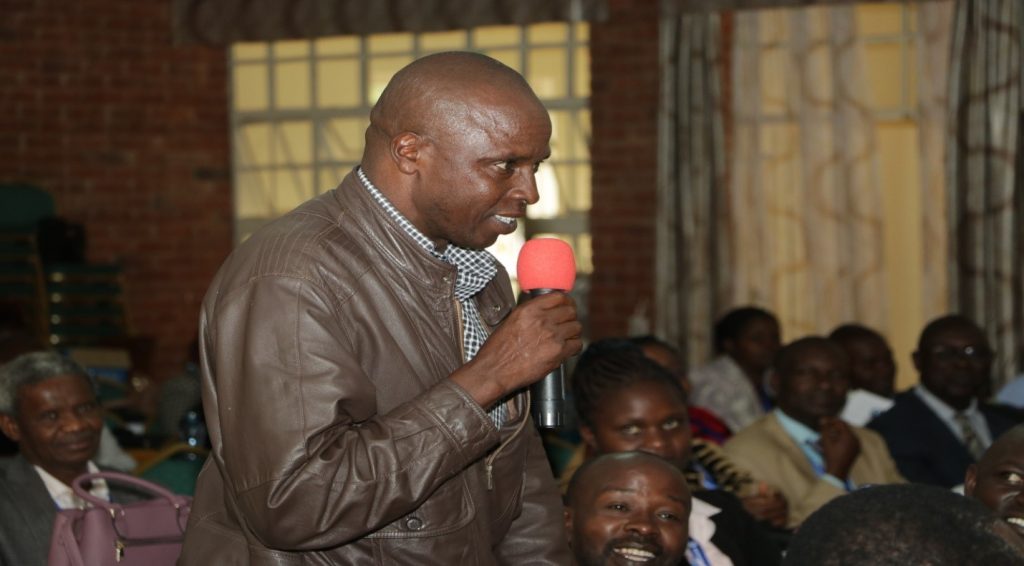
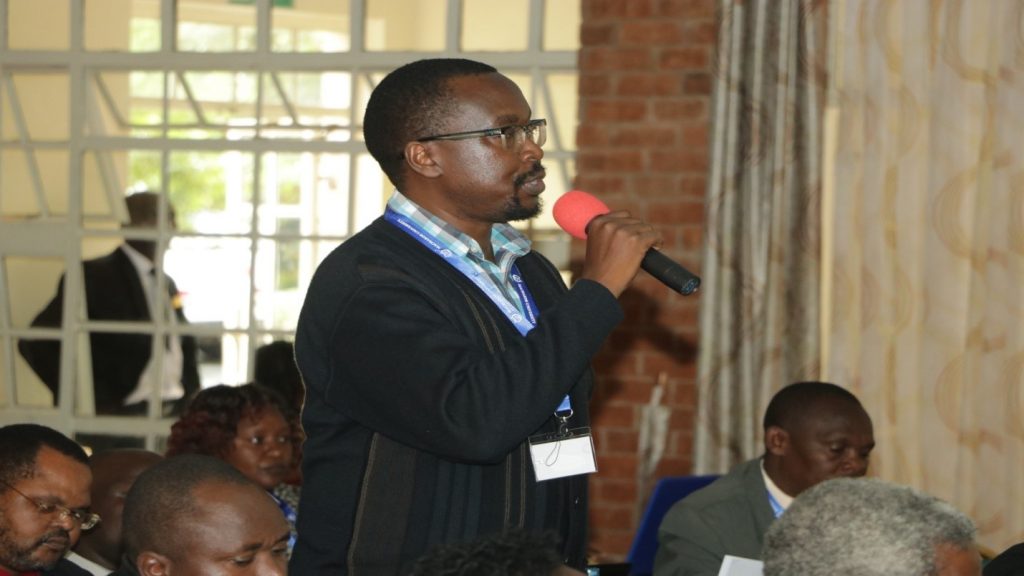
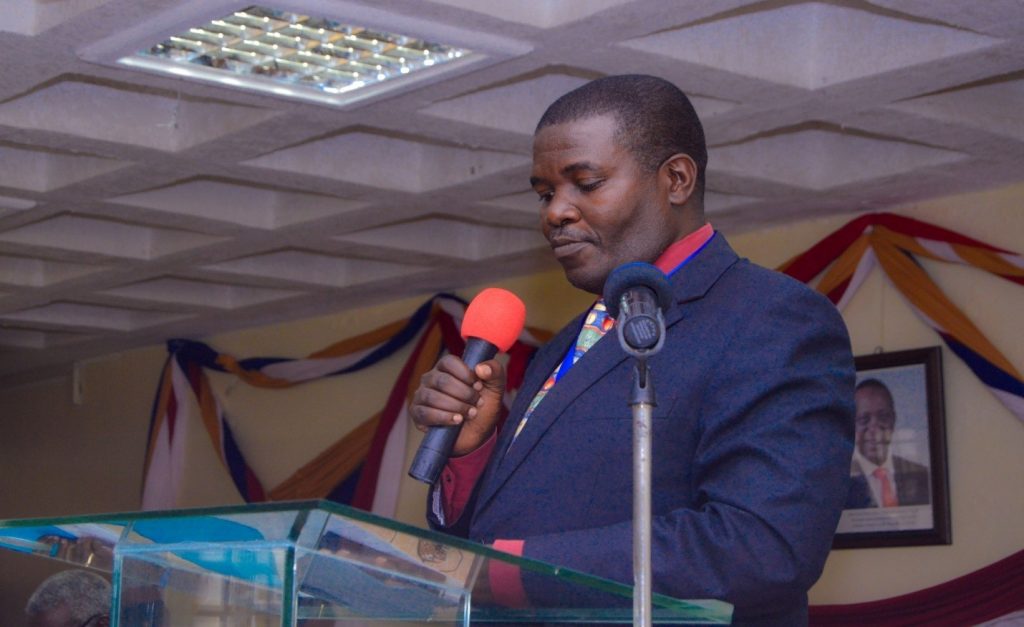
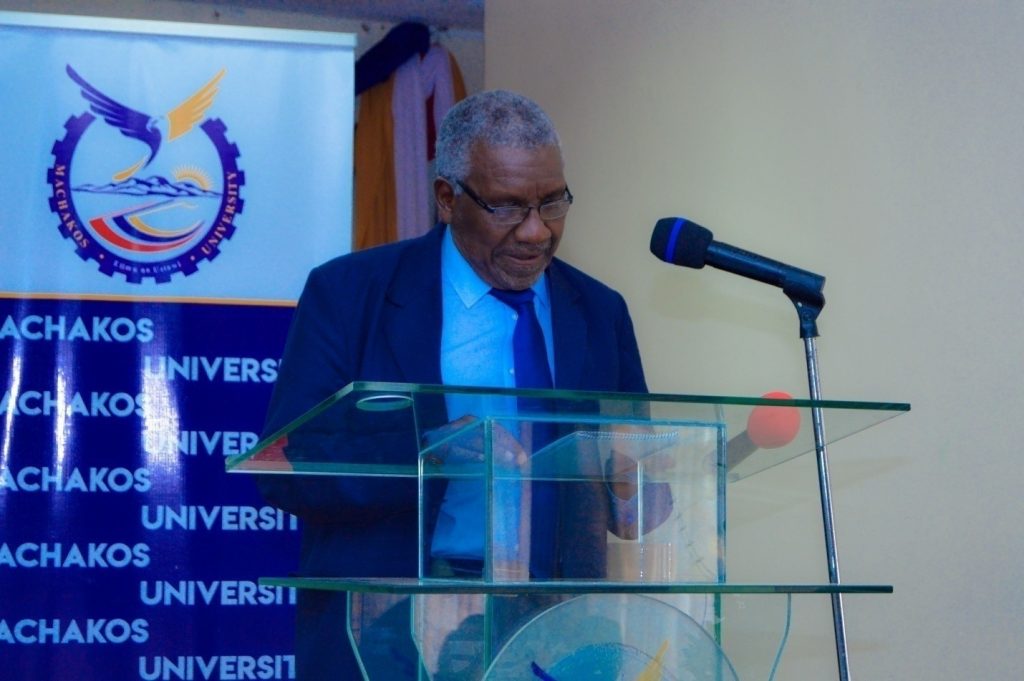
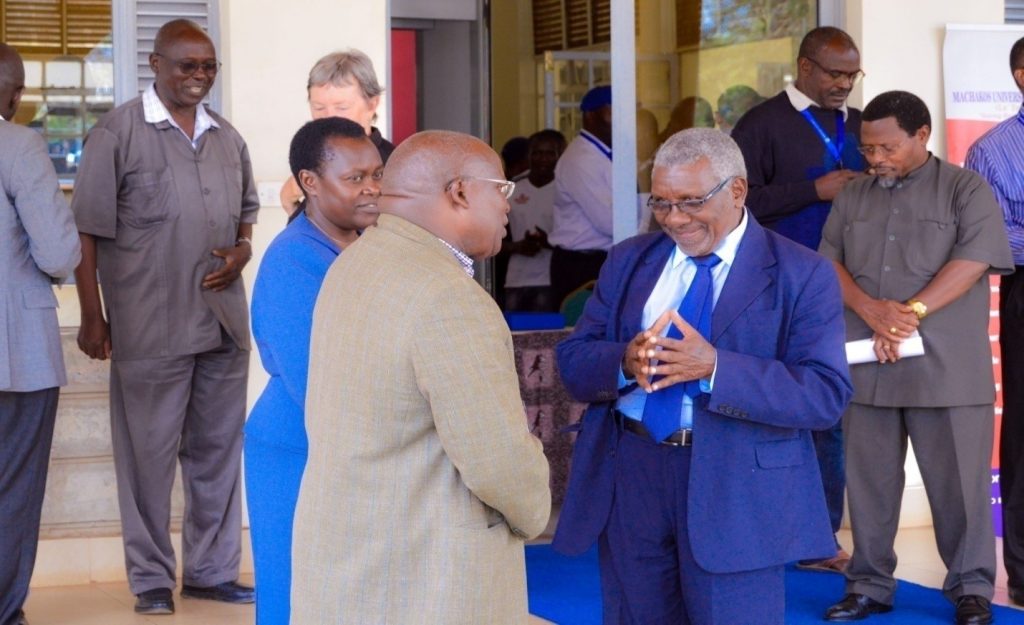
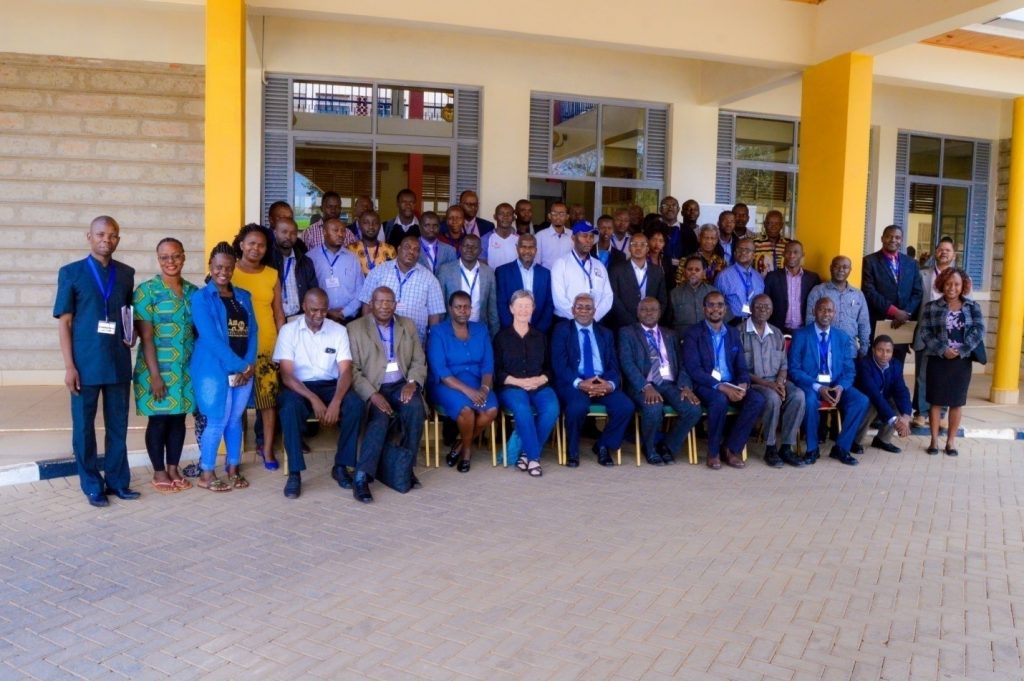
KEY NOTE ADDRESS
The Keynote addresses were made Prof. Gillian Westhorp (Charles Darwin University): A Realist Approach to understanding Green Growth and Sustain Development in Low- and Medium-Income Countries and Prof. Fabio Santoni (Sapienza University of Rome): Kenya’s First Satellite.
In her address, Prof. Gill mentioned that Middle- and Low-Income Countries desire to embrace green growth as a pillar for sustainable development could be realized if they continuously evaluate the programmes they have put in place. To this end, these countries could embrace realist evaluation approach. In a realist evaluation the assumption is that programmes are ‘theories incarnate’. That is, whenever a programme is designed and implemented, it is underpinned by one or more theories about what ‘might cause change’, even though that theory or theories may not be explicit.
“Undertaking a realist evaluation requires that the theories within a programme are made explicit, by developing clear hypotheses about how, and for whom, to what extent, and in what contexts a programme might ‘work’. The evaluation of the programme tests and refines those hypotheses. The data collected in a realist evaluation needs to enable such testing and so should include collecting data about: programme impacts and the processes of programme implementation, the specific aspects of programme context that might impact on programme outcomes, and how these contexts shape the specific mechanisms that might be creating change.” Prof. Gill said.
Prof. Gill is a realist research and evaluation methodologist and a Professorial Research Fellow at Charles Darwin University, where she leads the Realist Research Evaluation and Learning Initiative (RREALI). She also runs a private consultancy business specializing in realist research and evaluation. She is co-author of the international publication standards and quality standards for realist evaluation and realist literature review. Prof. Gill has provided in excess of 70 training workshops in 14 countries, developed several new methods for realist research and evaluation, and published in realist methodologies. In 2018 she was made a Fellow of the Australian Evaluation Society. She is currently working on two aspects of realist philosophy – epistemology (knowledge) and axiology (value) – and their implications for evaluation methods.
Prof. Fabio Santoni, the man behind Kenya’s First Satellite told participants that a lot of space pollution endangers the gains of green growth and green economy. He noted that a lot of human activities in the outer space is leading to a lot of objects being dumped into such space and soon this may become harmful if not destructive. He told participants that a lot of outer space exploration is done through satellites in which efforts are being made to embrace growing of plants such as tomatoes in the satellites. This effort could result in alternative food production.
“The future of green growth hence green economy will very much depend on how safe the exploration of the outer space is done.” Prof. Santoni remarked.
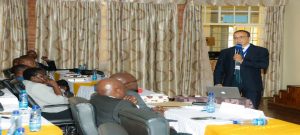
Prof. Fabio Santoni received the Dr. Eng. degree in Aeronautical Engineering (cumlaude) and the PhD in Aerospace Engineering both at Universita’ di Roma “La Sapienza”, in 1992 and 1996.In 1996 he was visiting scholar at Stanford University, were he participated in the small satellite programs Sapphire and Opal. He had technical management responsibility in the education program UNISAT at University of Rome “La Sapienza”, till 2009. He is presently Associate Professor in Aerospace Systems at the Dipartimento di Ingegneria Astronautica, Elettrica ed Energetica (DIAEE) of University of Rome “La Sapienza”, where he established the Aerospace Systems Laboratory. His research activity is mainly devoted to nanospacecraft design, attitude determination and control, space debris observation, mitigation and remediation techniques, including end-of-life disposal and active debris removal.
BREAK OUT SESSIONS IN PICTURES
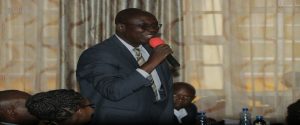
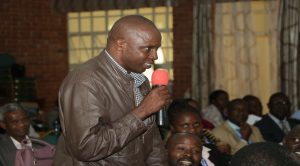
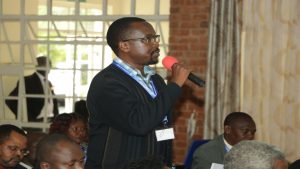
CLOSURE OF THE CONFERENCE
Curtains fell on the 2nd Annual International Conference on 26th April 2019 with official address from Prof. Chacha Nyaigotti-Chacha, the Chairman, Commission for University Education. Before officially closing the Conference, a wrap up and way forward was presented by Prof. Geoffrey Maroko, who is also the Conference Planning Committee, Alternate Chair. In his presentation, the Alternate Chair brought out the following:
- The 2nd Annual International Conference emerged as a deep reflection on the role of research, innovation and technology in the realization of the global, regional and national aspirations as espoused in the UN Sustainable Development Goals, AU Agenda 2063, Kenya Vision 2030, and the Kenya Government’s Big 4 Agenda.
- On research and evaluation, it emerged that realist approaches could provide another frontier characterized by analysis of contexts, mechanisms and outcomes. A key focus of realist approaches is the analysis causality in a bid to decipher which programmes work best, to whom, and why. All this is critical for sustainable development.
“We have also been walked through space, seen and learnt about space stations, traffic in space, collisions and explosions of satellites in space. We have also been exposed to the unfortunate intentional activities aimed at destroying satellites and how debris thereof could be polluting space to the detriment of agricultural and green energy initiatives in addition to other explorations by astronauts.” Prof. Maroko remarked.
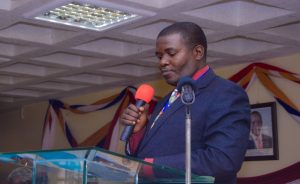
3. It also emerged that challenges of the 21st Century which have been conflated into the Big 4 Agenda in the short term in Kenya cannot be adequately addressed using approaches devoid of creativity and innovation. This calls for more critical, creative and design thinking initiatives for sustainable development. Climate change, food security, environmental conservation, manufacturing and housing can be addressed through innovative technologies, systems and processes.
4. Universities need to come down from the ivory tower and partner with Industry and Communities to help in finding solutions to the challenges they encounter. Let us initiate conversations on how to upscale resources for the creation and operation of innovation hubs in a bid to spearhead sustainable development.
5. From the constellation of presentations and exhibitions, one readily notices that virtually all spheres of human knowledge have a stake in green growth and knowledge economy for sustainable development. The implication is that everyone discipline is a part-solution to key global challenges. Let us push the agenda for collaborative research, innovation and technology development with renewed vigor and energy.
6. We need a framework for stakeholder engagement with the aim of developing policies that support research, innovation and new technologies in our institutions. We need to scale up funds and incentives that can spin this wheel towards sustainable development.
7. As a way forward, we need collaborations, networks and synergies coalescing into consortia of multi-disciplinary, multi-institutional, and multi-national outfits in pursuit of grants to undertake projects addressing cross-cutting concerns.
8. We need to start engaging stakeholders such as Commissions for University Education, Ministries of Education, and University Management Boards on the urgent need for recognition and support for innovation and technology development. We need to find mechanisms for translating our research outputs into real actions to improve the quality of life.
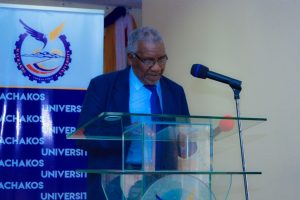
In his address, Prof. Chacha Nyaigotti-Chacha noted that the Conference was a success and presentations were of high quality and thanked the participants for their zeal. Prof. Chacha further said that the Conference theme was relevant as the world looks for ways to tackle climate change and related challenges in the light of sustainable development.
“It is indeed gratifying to see that scholars have travelled across the world, from South Africa, Malawi, Ghana, Uganda, Australia and Italy to come and share their thoughts on green growth and sustainable development. The world is a wake.” Prof. Chacha said.
Prof. Chacha urged the participants to continuously mentor the upcoming young scholars to participate in conferences as one to ensure a generation of scholars and researchers. He said that established scholars could motivate their students from undergraduate to postgraduate to cultivate a research and scholarship culture.
“I congratulate Machakos University for such a wonderful Conference. I happened to have attended the first conference, and I can for sure attest that Machakos University is doing well, and I pledge my total support. I now declare Machakos University 2nd Annual International Conference, officially closed”
